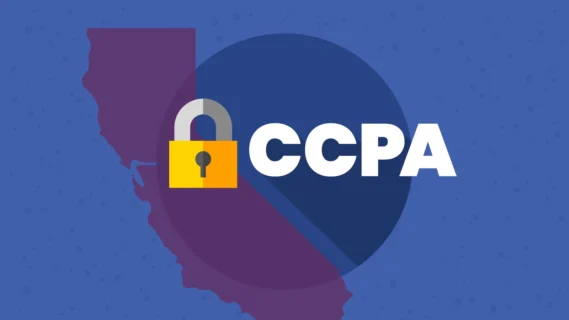
Across San Fernando Valley’s thriving professional sectors—accounting, legal, real estate, and finance—secure handling of financial data is mission-critical. From payroll systems and tax documentation to billing workflows and investment records, sensitive information is constantly exchanged through cloud applications, mobile devices, and shared networks.
This heavy digital reliance, however, makes financial data an attractive target for cybercriminals. Firms bound by compliance standards and client trust can’t afford the fallout of a single breach, which could trigger legal exposure, financial loss, and long-term reputational harm.
Effective protection demands more than basic firewalls or antivirus software. To stay ahead of today’s threats, San Fernando Valley businesses need a strategic, multi-layered approach grounded in proven cybersecurity practices.

The Unique Risk Profile of Financial Data
Unlike general business data, financial records carry inherent value to attackers. A compromised tax return or payroll system can lead to:
-
Identity theft or fraudulent filings
-
Business email compromise (BEC) and fake invoice scams
-
Wire fraud and manipulated payment instructions
-
Compliance violations under standards like GLBA, PCI DSS, or IRS Publication 1075
Small and midsize firms are often under the false impression that they’re “too small to be targeted,” when in reality, they may lack layered defenses that larger enterprises maintain—making them easier prey.
Why San Fernando Valley Firms Must Prioritize Security
The Valley’s unique business makeup—ranging from independent CPAs and wealth managers to family-run property groups—means financial workflows vary widely. But one thing is consistent: nearly all these firms store or transmit data that would be devastating in the wrong hands.
Whether your business uses QuickBooks Online, cloud-based CRMs, or internally managed spreadsheets, every touchpoint must be hardened against intrusion.
Essential Best Practices for Securing Financial Data
1. Encrypt Data at Rest and in Transit
Use strong AES-256 encryption for stored files and SSL/TLS for communications, ensuring that intercepted data remains unreadable without the key.
2. Implement Role-Based Access Control (RBAC)
Not every employee needs access to all financial data. Restrict access by role, and use audit logs to monitor data access in real-time.
3. Use Multi-Factor Authentication (MFA)
Login credentials alone are no longer sufficient. MFA drastically reduces unauthorized access to accounting software, payroll systems, and email accounts.
4. Schedule Regular Backups and Test Recovery
Backup data both on-site and in the cloud. Just as important: routinely test those backups to ensure data can be restored quickly in a real crisis.
5. Conduct Employee Security Training
Many financial breaches originate with human error. Train staff on phishing tactics, social engineering, and proper data handling procedures.
6. Deploy Endpoint Protection Across All Devices
From remote laptops to in-office desktops, ensure every endpoint is protected with advanced antivirus, EDR, and web filtering.

Real-World Incident: Fraud Averted at a Sherman Oaks Accounting Firm
In 2024, a Sherman Oaks firm received an urgent-looking email seemingly from the IRS, asking for access to client financials via a secure link. An employee clicked—but their endpoint protection flagged the domain and blocked the connection. The attack was a credential harvesting attempt targeting tax preparers.
Thanks to layered defenses and employee training, no data was compromised, and the event was reported and logged for further investigation.
Aligning with Financial Compliance Standards
San Fernando Valley firms often operate under regulatory oversight. Best practices also support adherence to frameworks such as:
-
GLBA (Gramm-Leach-Bliley Act) – Requires financial institutions to safeguard customer information.
-
PCI DSS (Payment Card Industry Data Security Standard) – For businesses processing cardholder data.
-
IRS Pub. 4557 & 1075 – Guidelines for protecting taxpayer data in digital formats.
Implementing best practices not only strengthens security—it creates a strong compliance foundation for audits, client contracts, and business continuity planning.
How TechCare Computers Helps Firms in San Fernando Valley
At TechCare Computers, we specialize in cybersecurity and data protection for financial professionals. We understand the nuances of securing financial workflows—whether you’re a single-operator tax consultant or a 50-person property firm handling investor records.
Our Services Include:
-
Financial Data Encryption and Secure Storage
-
Role-Based Access Setup and Audit Logging
-
Endpoint Protection and Backup Management
-
Compliance Readiness for GLBA, PCI, and IRS Requirements
-
24/7 Threat Monitoring and Incident Response
Protect your firm’s most valuable asset—your data.
Contact TechCare Computers today to schedule a consultation and secure your financial operations in San Fernando Valley.




